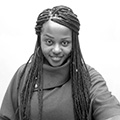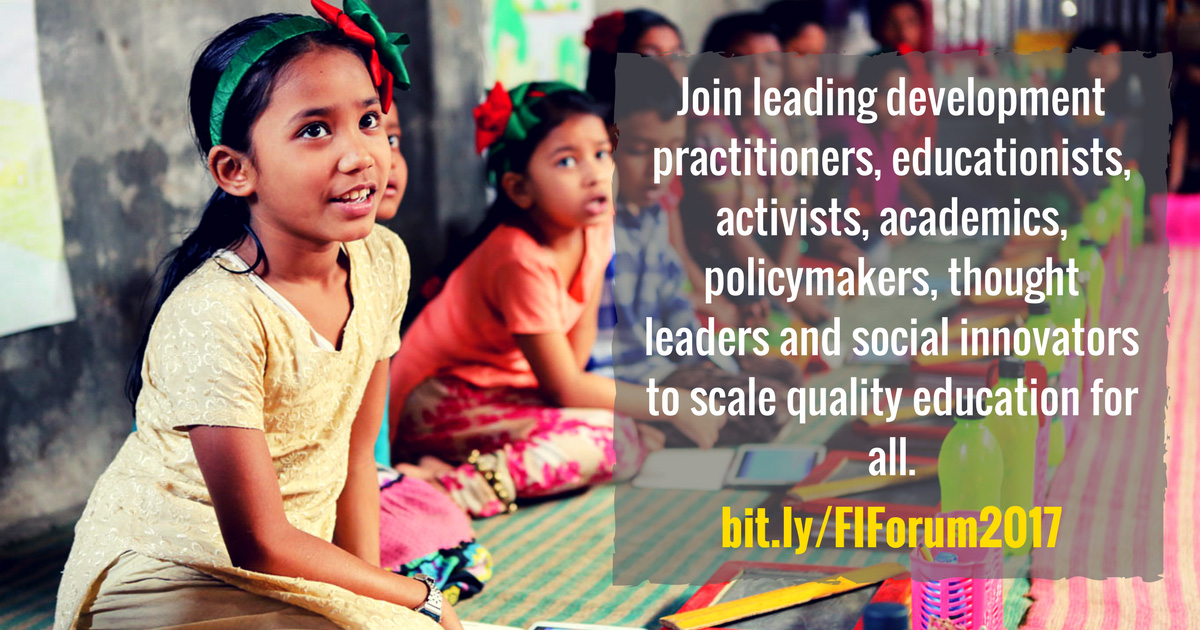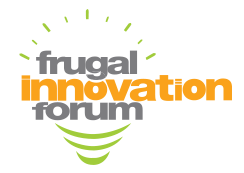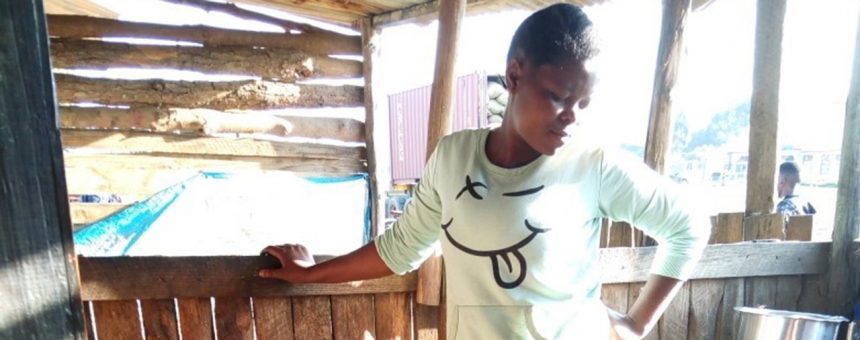Women and girls had been neglected for eras simply because in many third world countries societal barrier and cultural biases had continued to favor men. These practices had sadly, only led to the detriment of humanity. Yet, time and again, humanity turned into a blind eye. Therefore, predictably, the girl child suffered the most.
Our beloved world is home to 1.8 billion young people between the ages of 10 and 24, and the youth population is growing fastest in the poorest nations (UNFPA, 2014). Of which, according to Bill and Melinda Gates Foundation’s 2018 Goalkeepers data report, Africa contains nearly 60% of young population under the age of 25. In corroborated to that, UNESCO (2018) also identifies that, out of schools children aged 10-17 constitute 57.8% of the total population in Sub Saharan Africa, of which 61.3% are young girls and women. Furthermore, these youth group also account for 60% of all African unemployed (World Bank, 2017).
Thankfully, efforts are now under way to ensure girls have a fighting chance in society, particularly those from disadvantaged backgrounds, who wake up each morning facing a new battle for survival; those whose every step is a struggle in a cruel society that despises the less fortunate.
Girls who attend secondary school are three times less likely to be child brides. They also have better economic prospects, fewer and healthier children, and are more likely to ensure that their own children are not married.
With an aim to contribute to the challenges face by the adolescent and youth groups across the globe BRAC designed The Empowerment and Livelihood for Adolescents (ELA) programme, which has been already implemented in several countries of Asia (Nepal) and Africa (Uganda, Tanzania, South Sudan, Sierra Leone and Liberia). with a particular focus on those who are out of school. Since its initiation in 2007, through the establishments of the ELA programme BRAC has been able to reach over a thousands hundreds of adolescent girls and young women ages between 10-24 years through her unique safe spaces that have been an epitome of change and a catalyst to develop them as a change agent for the community and the broader society.
Evidences[1] show a 48% rise in income-generation activities, 34% drop in teen pregnancy 62% drop in early entry into marriage/cohabitation in villages with ELA clubs. Additionally, the share of girls reporting forced sex also falls from 14% to almost half that level and aspired ages at marriage and childbearing both move forward. Irrespective of the recent conflict in South Sudan[2] and the Ebola outbreak in Sierra Leone[3], recent studies show the positive impact of ELA programme in the communities on invcome generation, financila security and food security.
Brac Tanzania, under it’s flagship programme titled Empowerment and Livelihood for Adolescents saw this as a chance to step in and leverage the situation that girls were facing in Africa. By offering adolescents girls and women from disadvantage background the opportunity for a better life through mentorship, life skills training, financial education and skills, and microfinance BRAC Tanzania contributes to the empowerment of these youth groups..It provides safe spaces for them to socialise, and receive mentoring and life skills training, which is combined with financial literacy training and customised micro-loans.
Over the years, girls from different walks of life have poured into the safe spaces, that are run within their communities. The safe spaces which are unfashionable from an eagle’s view outside however the inside is a cooking pot of talent that sparkles with joyful girls all set to face life’s challenges head on.
Inspired by their instructors, the girls are admirably sharp and oozing with confidence that drives them forward each morning; giving them hope. Surprisingly even with their different backgrounds, religion, and tribe there is the common denominator that glues them together is their hunger for success, the burning ambition to make good of their second chance at life.
Here is a story from one of the adolescents:
Mdage’s transformation: From struggle to success.
When the going gets tough, the tough get going… This famous expression aptly captures the life story of Prisca Mdage so far, a bright entrepreneur in Iringa with her feet firmly on the ground.
Born 22 years ago, Ms Mdage has been through all the vagaries of life. Raised in an average family, every single day has been a struggle. Three years ago, with no job, no one to look up to and battling with the basics, Ms Mdage fell pregnant. Yet, she was only 19, still discovering herself.
When the bundle of joy finally came, the real challenge began: Parenthood. With no income to support her baby, the world seemed a bad and horrible place. But she never gave up; rather than drown in despair, she took on her problems head on. Then she met BRAC… a meeting that turned her life around. Today, Ms Mdage is stable, happy and looking forward to a bright future.
Here is her story….
“My name is Prisca Mdage. I am 22 and a member of Mgodi I ELA Club, which is under the Kinyanambo BRAC branch in Iringa. I run a small restaurant in Kinyanambo, where I also live with my three-year-old daughter.
“I was born into an average family, and life has been a struggle all through; we have always had to fight for necessities. Thankfully, we keep going. In 2015, when I was just 19 and jobless, I was blessed with a beautiful baby girl. The joy was however short-lived as it was a very difficult period since I had no financial support. As I considered my future, I got introduced into the adolescent girls’ club, ELA.
“Since I was just idle with no plan, I did not think twice about the chance; I quickly registered. As it turned out, it was a wise decision. At the club, I got livelihood training skills, particularly in food processing and food production. After training, and with generous support from BRAC, I started my own business; the restaurant.
“So far, business has been good as the restaurant brings home a considerable profit of about TSh50,000 per week. With this, I am able to provide basic needs for myself and my daughter and, sometimes, even assist my parents with cash, which they always appreciate. I am glad that they are proud of me.
“My future plan is to expand the restaurant. I want to modernise it to accommodate more customers as well as provide catering services for weddings, birthday and farewell parties and other events/gatherings/occasions. I have already employed two other girls who assist me with the business. I am also planning to enroll my daughter in school next year so I am saving money for her school fees and other necessities.”
“I think most girls need this kind of guidance in our community. The life skills education is also very important as one gets to appreciate issues regarding HIV, since the most affected in our town are the youth. I also advise other girls on social and economic issues. Many a time, I direct them to the safe spaces so they can acquire training and life skills.”
[1] Oriana Bandiera, Niklas Buehren, Robin Burgess, Markus Goldstein, Selim Gulesci, Imran Rasul and Munshi Sulaiman. Women’s Empowerment in Action: Evidence from a Randomized Control Trial in Africa. London School of Economics, University College London, World Bank. July 2017.
[2] Niklas Buehren, Shubha Chakravarty, Markus Goldstein, Vanya Slavchevska, Munshi Sulaiman. Girls’ Empowerment and Conflict: Evidence from South Sudan. World Bank. May 2018.
[3] Oriana Bandiera, Niklas Buehren, Markus Goldstein, Imran Rasul, Andrea Smurra. Human Capital Accumulation in a Time of Crisis: Evidence from an RCT in Sierra Leone During the Ebola Epidemic. London School of Economics, University College London, World Bank. March 2018.
 |
Nancy Kataraihya Project Manager, Empowerment and Livelihood for Adolescents, BRAC Tanzania |



